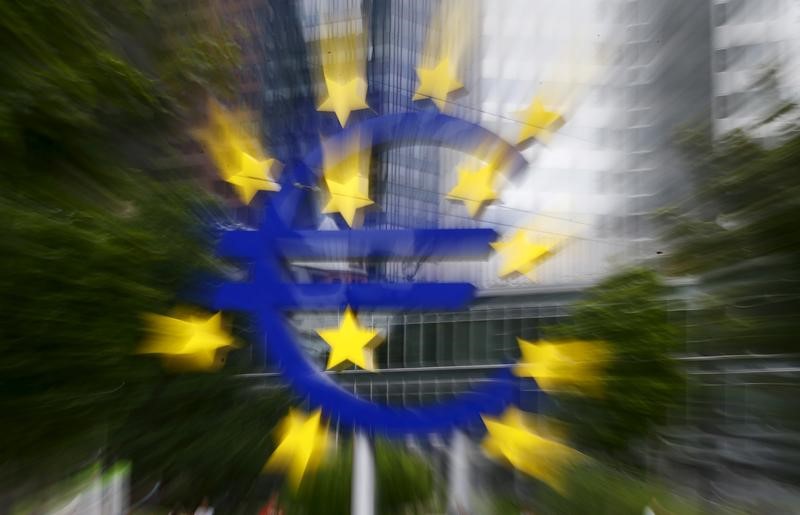By Francesco Canepa and Balazs Koranyi
FRANKFURT (Reuters) - Spooked by a market backlash, some European Central Bank policymakers are having doubts about signalling in July that they are moving closer to dialling back their easy money policy.
Conversations with six central bank officials from across the euro zone showed they had been unnerved by a rise in the euro and in government bond yields after ECB President Mario Draghi opened the door last week to policy changes.
Wary of weakening the economic recovery, some rate setters have become nervous about dropping their long-standing pledge: they will expand or extend the ECB's 2.3 trillion-euro bond-buying programme if necessary to bring inflation back to its target of just under 2 percent.
Such a change is almost certain to be discussed when the bank meets on July 20. But removing the pledge would probably be taken by the market as a sign the ECB was preparing to wind down the scheme, which has made borrowing cheap and boosted euro zone exports by holding down the value of the euro.
Despite declines on Monday, the euro
"We have to see how the market develops between now and the meeting," one of the sources said. "I’d say we should err on the side of caution."
A spokesman for the ECB declined to comment.
With inflation above 1 percent and the euro zone's economy on its best run for years, officials generally agreed the way was clear for a gradual normalisation of ECB policy. They disagreed on the timing, though.
In June, the ECB shut the door to further rate cuts and took a more sanguine view of the economic outlook for the euro zone - thereby removing two so-called 'easing biases' from its policy message.
The market took those changes in its stride, so economists expected the rate-setters would soon omit their pledge "to increase the (bond) programme in terms of size and/or duration" if necessary.
But the officials who spoke to Reuters are no longer sure that will happen at the July 20 meeting.
"I was thinking we'd drop the other easing bias in July, but after the market reaction to Draghi's speech I'm less sure about it," one official said.
The head of Germany's Bundesbank, Jens Weidmann, said on Saturday that ECB rate setters were discussing moving away from an ultra-easy stance but were still arguing about how expansive policy should be.
Another source suggested one solution might be to break up that part of the guidance: take out only the reference to increased purchases or the one to prolong them.

The message could then be amended further in September, when the ECB gets updated inflation forecasts. Those might help the policymakers decide on the future of the programme beyond its December end date.